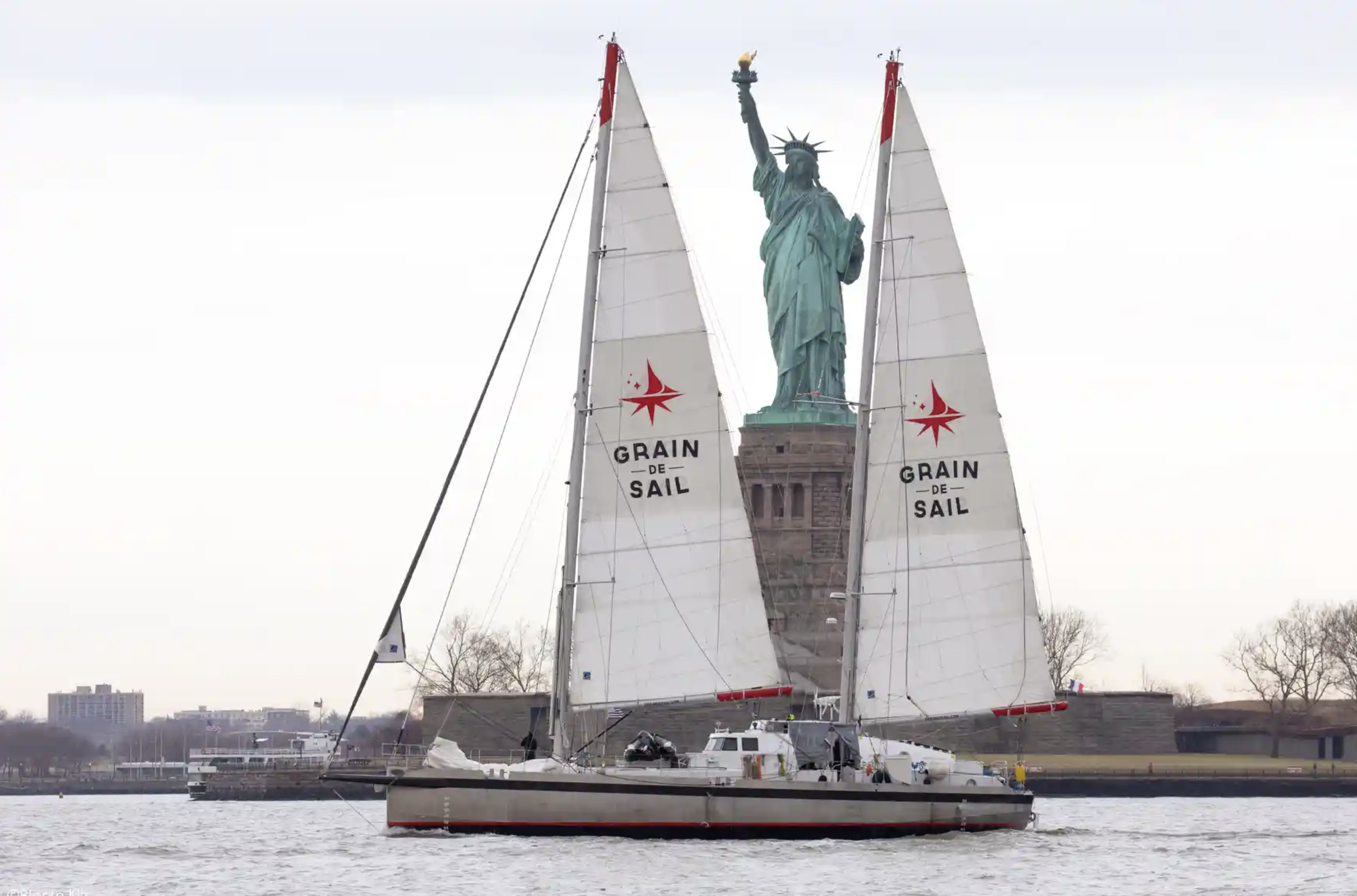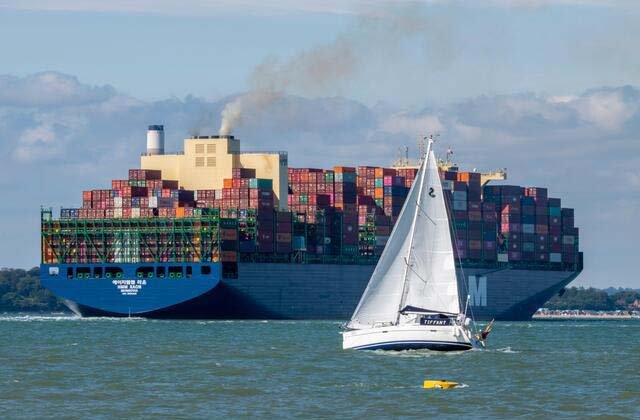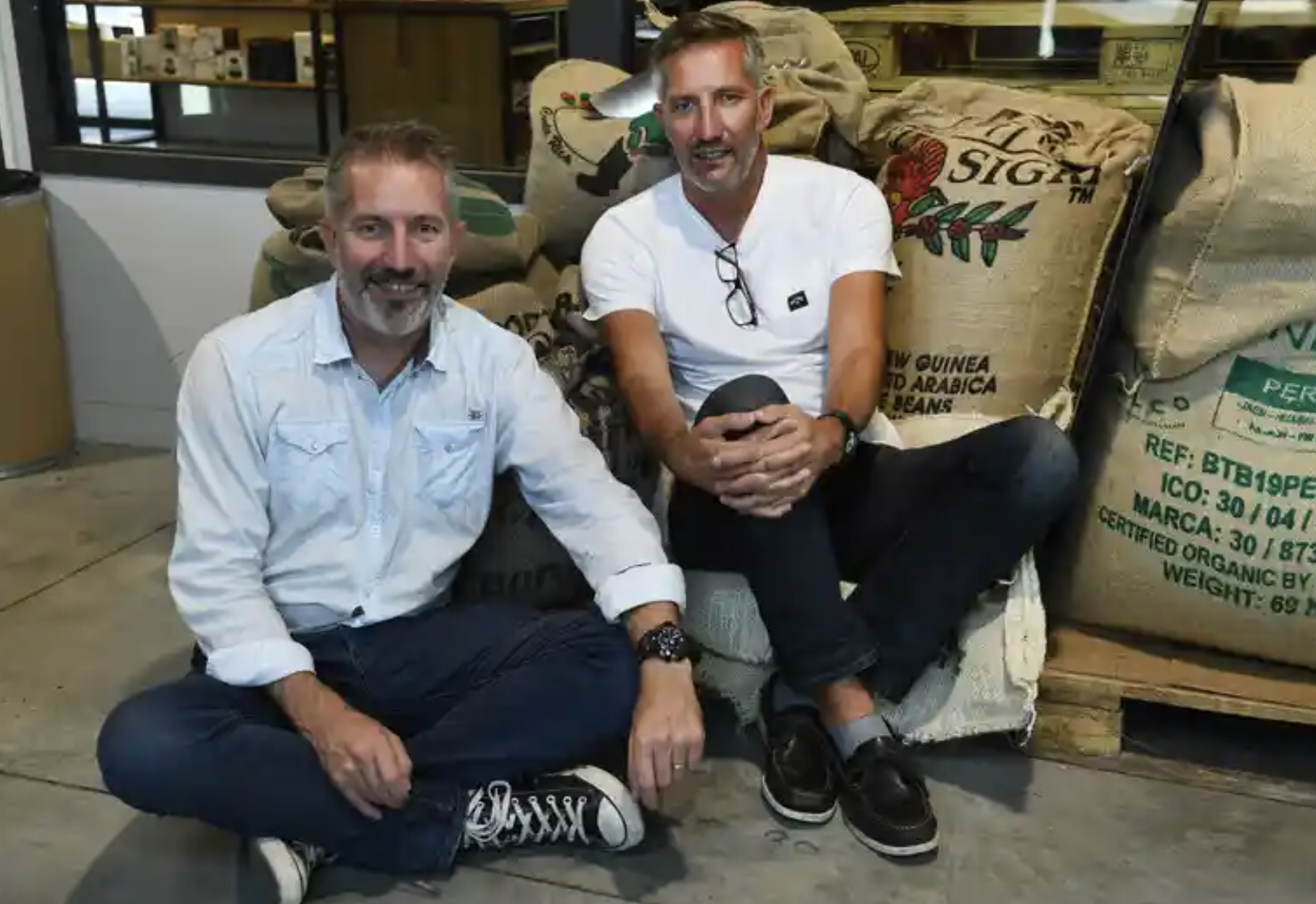‘It’s a little bit of utopia’
The GRAIN DE SAIL in New York. Photograph: Grain de Sail/Bjoern Kils
The dream of replacing container ships with sailing boats
Do you know about the Guardian “Long Reads”? They are a series of free and stimulating articles for people with an old fashioned attention span. The data we collect on this site suggests that a majority of SWS readers fall into this category!
SWS has published one or two articles about sustainable marine transport. It’s one of my pet topics. So when I come across this fascinating read published last week, I felt I had to share. OK, so it’s not really about wooden boats. But it is about so many of the values that the wooden boat community hold dear…the environment, authenticity and creative thinking.
Global trade depends almost entirely on huge, dirty, dangerous container ships. Now a team of French shipbuilders is bringing back wind-powered sea freight
Thu 14 Jul 2022 15.00 AEST
Last March, the whole world saw one of the largest cargo ships in existence – 400 metres long, weighing 265,000 tonnes, loaded with 20,000 shipping containers – get stuck in the Suez canal. For six days, tiny tugs tried to nudge the EverGiven off a sandbar. Waiting at both ends of the canal were more than 300 cargo ships and tankers, carrying petrol, semiconductors, microchips, scrunchie hair bands, sneakers, hand-held travel steamers, ice-cream-makers, novelty socks and electric milk-frothers. As the global supply chain ground to a halt, we became aware that 90% of everything in our homes – clothes, appliances, food – has, at some point, been transported by sea.
Cargo ships burn some of the dirtiest petrol going, known as bunker. Made from the sludgy leftovers of petrol refining, it is as viscous and black as molasses and full of sulphur; when it burns it gives off carbon monoxide, nitrogen oxide and sulphur dioxide. Container ports are consequently wreathed in smog. Shipping accounts for 2%-3% of global carbon emissions, but it also damages the environment in other ways. Ships regularly dump garbage and contaminated bilge water into the ocean, and underwater noise pollution disrupts the life cycles of fish, whales and dolphins.
While other industries are turning to alternative fuels, shipping has lagged behind. The International Maritime Organization, the UN agency that oversees the shipping industry, has drawn up plans to reduce carbon dioxide emissions of the global cargo fleet. But many observers consider the targets unambitious and, as there is little threat of punishment if they aren’t met, toothless. “They’re a sham … window dressing,” one shipping journalist told me.
Grain de Sail’s Jacques (left) and Olivier Barreau. Photograph: Fred Tanneau/AFP/Getty Images
Olivier Barreau and his twin brother, Jacques, are part of a small but growing number of entrepreneurs who are grappling with the problem of how to transport goods across the globe at a scale that makes economic sense, without further damaging the planet.
Follow the Guardian Long Read on Twitter at @gdnlongread, listen to the podcasts here and sign up to the long read weekly email here.



